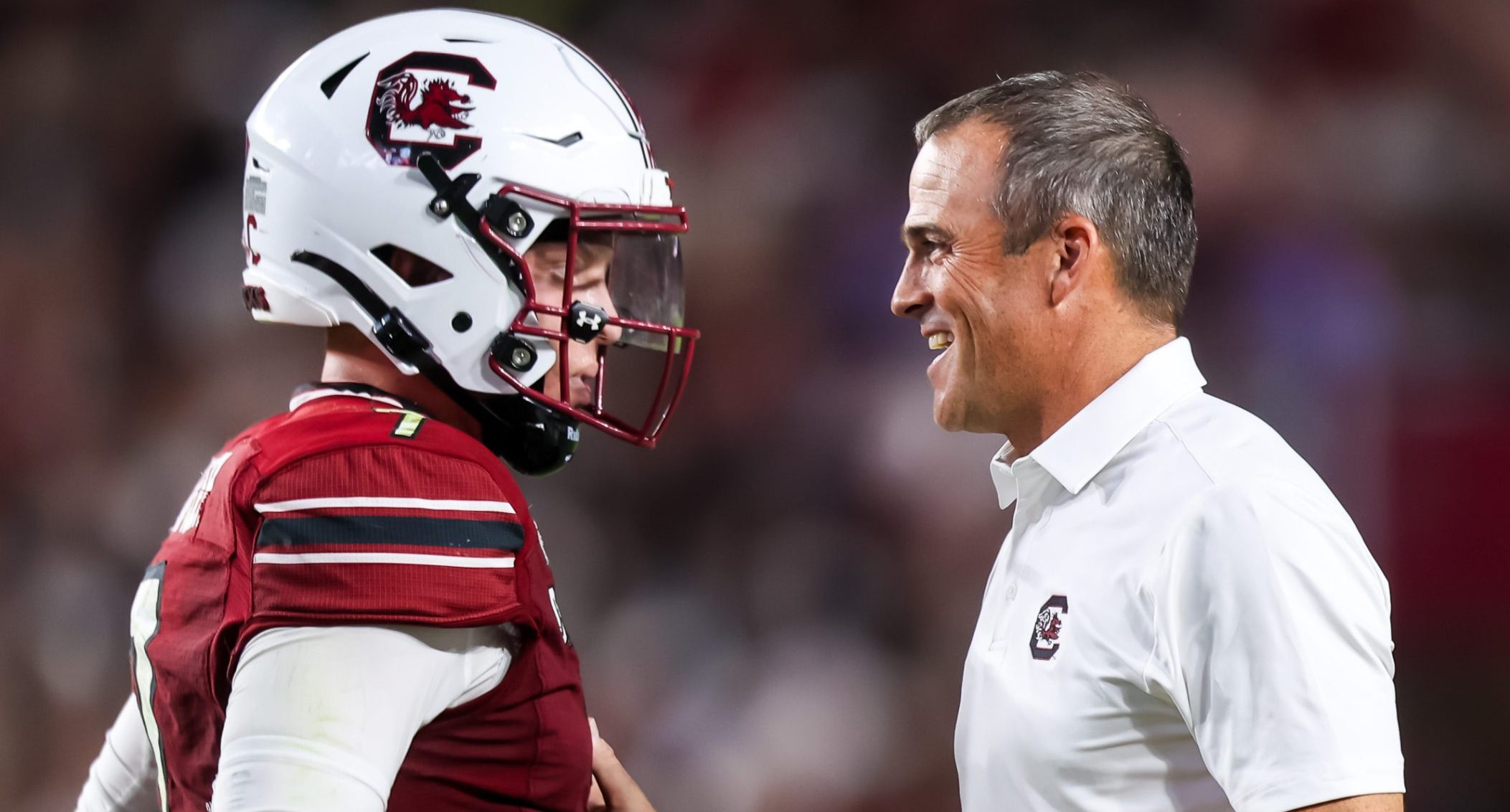Thursday night’s Pro Football Hall of Fame game between the New York Jets and the Cleveland Browns illustrated potential challenges for broadcasters in covering Browns’ quarterback Deshaun Watson. This season will mark Watson’s first full on-the-field season for the Browns. It comes following their trade of three first-round picks and a package of other picks for him in 2022, their signing of him to a five-year, $230 million, fully-guaranteed extension, and the eventual 11-game suspension he received from the NFL for violations of the league’s personal conduct policy around allegations of sexual misconduct (and civil lawsuits over that) from dozens of women.
NBC broadcasters Mike Tirico and Cris Collinsworth outlined that whole situation during the second quarter of Thursday’s game. But one of Collinsworth’s remarks there drew some blowback. And, interestingly enough, that was about the need to discuss these off-field matters with Watson. But Collinsworth’s language of “what happened to him” was criticized. Here’s a clip of much of that discussion, with the key part of Collinsworth’s comments coming around 1:37:
Cris Collinsworth's Deshaun Watson comment around 1:37 here of "Almost automatically, you have to acknowledge what happened to him off the field before you're allowed to even begin a conversation about on the field" drew a lot of reaction. pic.twitter.com/UWNlmc6UXd
— Awful Announcing (@awfulannouncing) August 4, 2023
“Almost automatically, you have to acknowledge what happened to him off the field before you’re allowed to even begin a conversation about on the field. And we understand, or at least we’re trying to portray, the fact that we get the big picture of this situation. We understand how everybody feels about the components of this thing. As a football player, though, which is what our job is, it is going to be paramount on him to be patient. Because I’m not sure that the Cleveland Browns can make as bold of a jump offensively as what he would probably like to see.”
Here are some of the many reactions that commentary from Collinsworth drew:
Ah yes, Deshaun Watson's troubles were merely "something that happened to him" pic.twitter.com/L1rfgx7c9I
— Timothy Burke (@bubbaprog) August 4, 2023
this might seem like a small thing, but it's this kind of media coverage that normalizes sexual violence, reframes Watson as the victim and excuses everyone involved (not just Watson, but the Browns and the league) in bringing him back. it's atrocious, and it's sad. https://t.co/yMf1JUuGBH
— Daniel Sailofsky (@DanielSailofsky) August 4, 2023
Blows my mind (although it should not) that these announcers STILL do not know how to properly talk about Deshaun Watson. Do better @NFL. Oh wait I forgot you all are incapable of doing better. @NFL https://t.co/UFjG8D0nb6
— Anastacia Williams (she/her) (@Anastacia026) August 4, 2023
Damn was he in a car accident or something…? https://t.co/MxGU7RD4uX
— We watching or nah (@tommyb4_cards) August 4, 2023
The remarkable thing here is that NBC seemingly tried very hard to avoid just this outcome. The full clip above illustrates how much time Tirico spent illustrating exactly what did happen with Watson, including that many of the lawsuits have been settled but one remains active and may go to trial. And the actual point Collinsworth was seemingly trying to make here was to acknowledge that the off-field stories on Watson’s behavior and his punishment from the NFL (and the way the league has since reworked its policies in the wake of this) are an important part of discussing him, and should be included in addition to pure football analysis.
But the wording Collinsworth used here didn’t fit the situation, and that’s what led to this backlash. The chief problem with Collinsworth’s commentary here was how he portrayed the Watson situation as “what happened to him.”
Parts of that situation indisputably did happen to Watson, in particular the eventual NFL suspension. And a more specific discussion of that could have been fine. But the overall story is not something that “happened to” Watson, but something that his behavior caused. (Even if his own recent comments have tried to blame everyone else, including the media.)
It was Watson’s actions that led to those lawsuits, investigations, and that eventual suspension. And while Collinsworth didn’t need to run through all of that given how Tirico had just outlined it, his summary of this used the wrong premise. That overshadowed his point about the need to acknowledge the off-field issues around Watson before discussing his on-field play. And it led to this criticism.
The larger point here, though, is that broadcasters are going to have further challenges discussing Watson. The Watson situation is not an easy topic to cover, as Collinsworth’s comments here show. And it’s going to be vital for any broadcaster addressing it to be precise with their language.
Of course, just how much Watson’s history will be discussed, and for how long, is going to be a tough decision for networks. And the NFL’s broadcasting setup there presents further challenges. As for any team, Browns’ games are going to have a mix of fans who watch every game the team plays, and then more casual fans, fans of the opponent, and those watching without a rooting stake.
The presence of the latter three categories suggests some need to cover Watson’s off-field issues, for the first few games of this season at the very least. And perhaps it should be longer than that. There could be on-field impacts here too, as Watson’s early play, good or bad, could certainly use some context around his remarkably long suspension last year and what led to that.
And with games being broadcast on different networks and with different announcing crews, there are going to be a whole lot of people who will have to try to figure out how to handle Watson commentary. So there are tough decisions ahead on how much to cover his off-field saga, and how to do so. And this is far from the first announcing pitfall around Watson, and it’s unlikely to be the last. But it might be wise for announcers to avoid using a vague “what happened to him” going forward.







